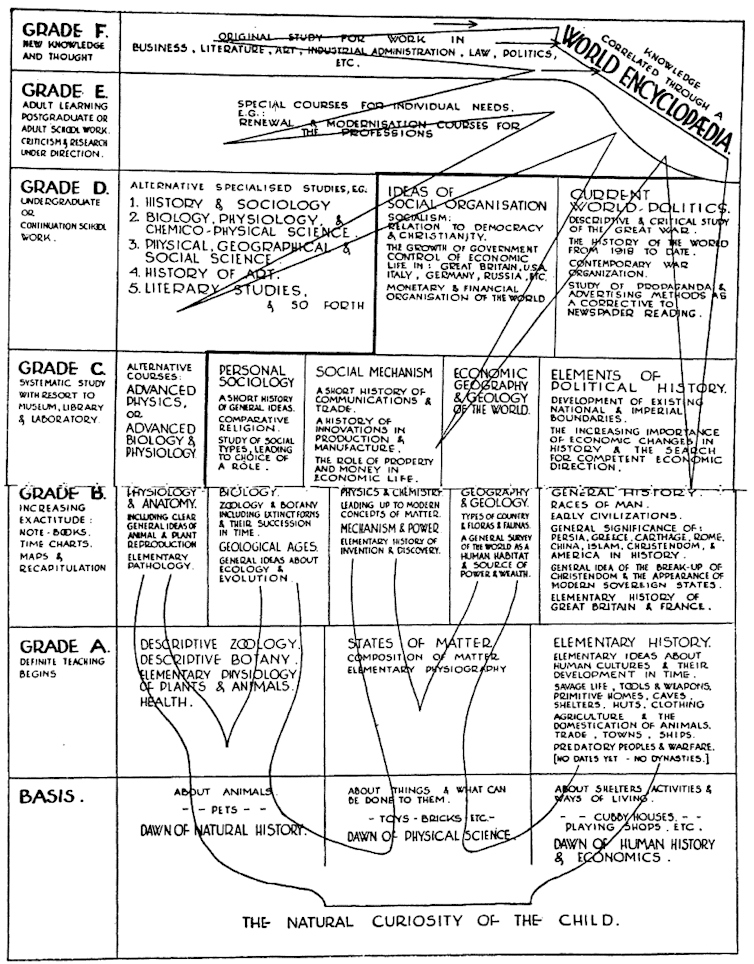Key Takeaways:
- Flat Earth conventions reveal shifting dynamics between power and knowledge in the 21st century.
- Emphasis on observable facts and scientific methods characterizes the discussions, contrasting their skepticism towards established scientific institutions.
- The relationship between power and knowledge, theorized by sociologists like Michel Foucault, illuminates the resurgence of groups like flat Earthers.
- The decentralization of knowledge through social media platforms leads to increased polarization and challenges to established narratives.
- The emergence of populist movements sidelines scientific expertise, fostering a reliance on emotions over established facts.
In the heart of Birmingham, the inaugural Flat Earth Convention captivated attendees from various corners of the globe, signaling a unique three-day event that transcended traditional conventions. Beyond the expected speeches and YouTube presentations, the gathering featured team-building activities, networking sessions, spirited debates, workshops, and even scientific experiments.
Remarkably, flat Earthers demonstrated a commitment to scientific methodologies and observable facts, with a considerable portion of the weekend dedicated to discussing and debating science. Presenters urged participants to seek “multiple, verifiable evidence” and emphasized the importance of personal research and a willingness to challenge one’s beliefs.
While the flat Earth community embraces scientific methods, a noticeable paradox emerges in their skepticism towards scientists and established power structures in the realm of knowledge. This skepticism aligns with long-standing sociological theories, particularly those articulated by Michel Foucault, highlighting the intertwined relationship between power and knowledge.
The convention showcased a diverse range of flat Earth models, including classic flat Earth, domes, ice walls, diamonds, puddles housing multiple worlds, and Earth conceptualized as the inside of a colossal cosmic egg. However, discussions often transcended these models, focusing on broader issues concerning attitudes towards existing knowledge structures and the institutions supporting them.
Michel Foucault’s theories become particularly relevant when examining the flat Earthers’ distrust of established power structures. Foucault’s work, delving into the close connection between power and knowledge, sheds light on the community’s skepticism, echoing historical patterns of challenging dominant institutions.
In the 21st century, a significant shift in power and knowledge dynamics is evident, fueled by the widespread accessibility of social media platforms. This shift challenges the centralized control of knowledge, as exemplified by Brexit’s aftermath, where the authority of experts faced skepticism. Increased societal polarization is observed, with a significant percentage of voters on both sides unable to agree on basic facts.

The convention highlighted the decentralization of knowledge in the age of social media, a recurring theme in discussions. Even during debates between flat Earthers and physics PhD students, the audience’s preference for internet sources over traditional media underscored a desire to separate knowledge from established scientific institutions.
Simultaneously, as scientific claims to knowledge and power face skepticism, some power structures embrace populist politics characterized by a growing distrust of knowledge. This phenomenon manifests in extreme ways, such as public figures endorsing conspiracy theories. Brexit’s campaign, relying on emotions over expert statistics, exemplifies this subtle shift towards populism.
The flat Earthers’ narrative encourages a departure from clinical regurgitation of established theories, urging trust in “poetry, freedom, passion, vividness, creativity, and yearning.” This sentiment aligns with a broader trend where emotions and populist approaches supersede traditional scientific communication.
In conclusion, the public gathering of flat Earthers reflects contemporary shifts in our relationship with knowledge and institutions. Just as Foucault explored what social outliers reveal about societal systems, the flat Earth community provides insights into the evolving dynamics between power and knowledge.
The success of the UK event and upcoming conventions in North America suggests that the flat Earth discourse will persist, symbolizing a broader trend of skepticism towards established scientific institutions in the current era.
This article was originally published by The Conversation. Read the original article.


